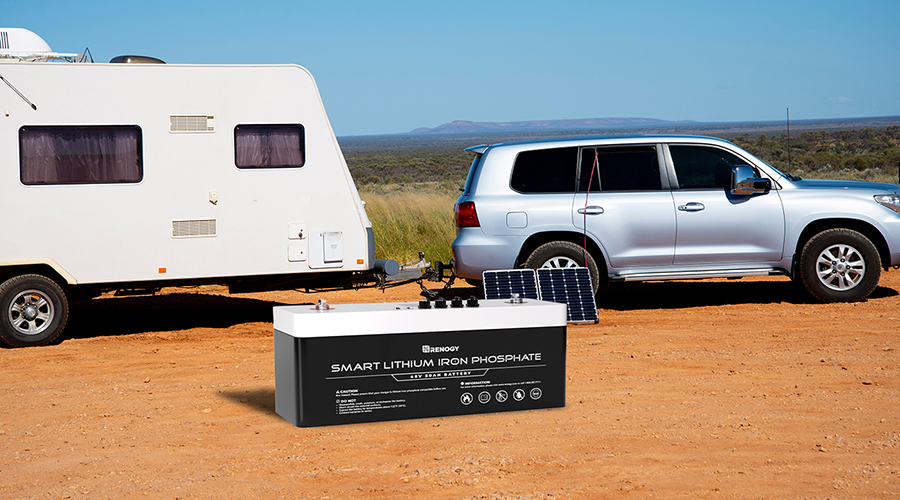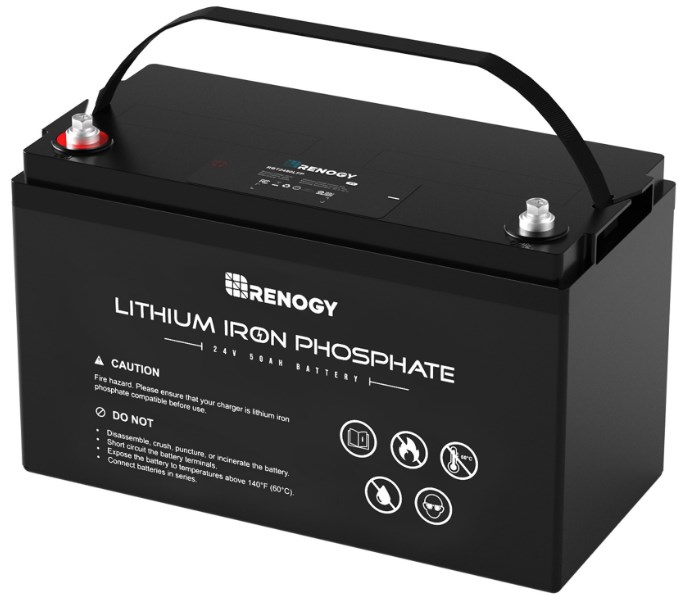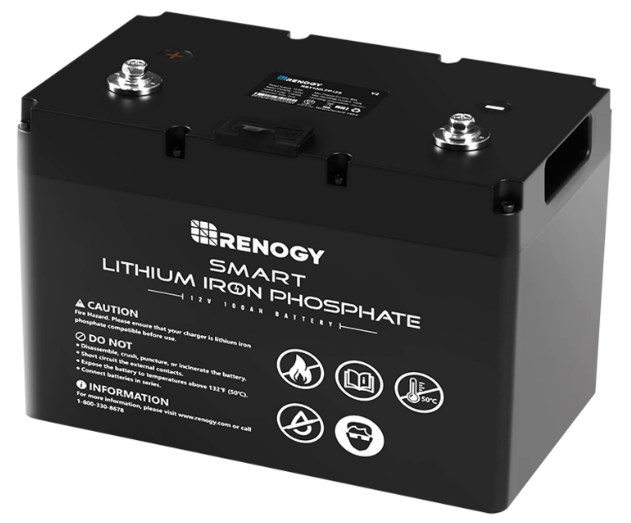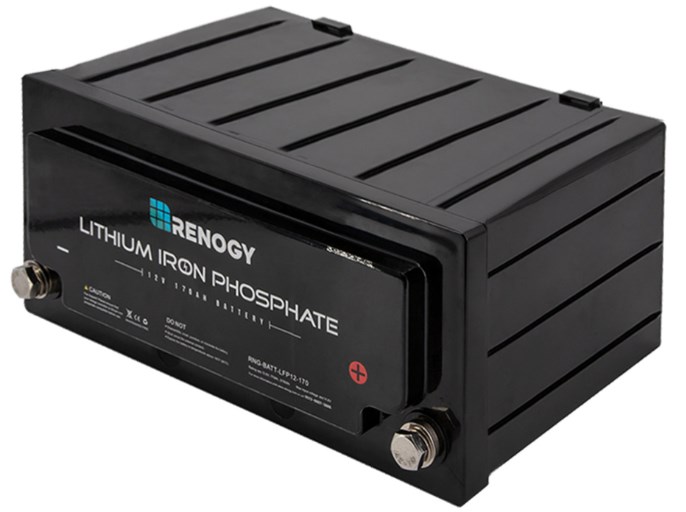How Long Do RV Batteries Last? All About RV Batteries Lifespan
Have you ever been stuck in the middle of nowhere with a dead RV battery? Don't despair – knowing how long different types of RV batteries last can help you plan to avoid being caught with a dead one on your travels.
RV batteries come in different types, with AGM batteries typically lasting 500-800 cycles or 3-5 years, Gel batteries lasting 500-1000 cycles or 3-6 years, Flooded Lead Acid batteries lasting 500-1000 cycles or 3-6 years, and Lithium batteries lasting 2000-4000 cycles or 10-15 years. For a single charge, these batteries typically last 2-3 days.
In this article, we will discuss:
- How Long Do RV Batteries Last?
- How Do I Know If My RV Needs A New Battery?
- 12V Battery Maintenance
- Don't Forget To Check Your RV Battery! Keep reading to learn about the different types of RV batteries and how long each kind typically lasts, along with details on extending battery life and keeping your RV powered up.
How Long Do RV Batteries Last?
Getting the right RV battery for your vehicle is essential for a fun and secure camping experience. But it's also important to understand how long batteries last to plan ahead and ensure your RV camping trip is a success.
RV batteries come in a variety of types, and the lifespan of each type may vary. Generally speaking, how long RV batteries last will depend on the type, depth of discharge, voltage, usage, and how you care for and maintain them. Let’s explore these factors and see how each affects your RV battery lifespan and longevity.
Types of RV Batteries
Regarding RV batteries, there are four main deep cycle batteries types: AGM batteries, Gel batteries, flooded lead acid batteries, and lithium batteries.
● AGM batteries typically last 500-800 deep cycles and up to around 3-5 years
● Gel batteries last for about 500-1000 cycles and up to 3-6 years
● Flooded lead acid batteries usually last 500-1000 cycles with a lifespan of around 3-6 years
● Lithium batteries last about 2000-4000 cycles and up to 10-15 years.
| Type of Battery | Life Cycles |
| AGM Lead Acid | 500-800 (3-5 years) |
| Gel Lead Acid | 500-1000(3-6 years) |
| Flooded Lead-Acid | 500-1000(3-6 years) |
| Lithium-ion | 2000-4000(10-15 years) |
Click here to learn more about these RV batteries for solar panels-RV setups. Solar is now a crucial source of energy for most modern RVs, so understanding the role and various types of batteries in a solar-based system is important.
Depth of Discharge (DoD)
Let’s talk about the Depth of Discharge (DoD) to understand how long RV batteries can last. DoD measures the percentage of the battery’s total capacity that has been discharged and is ready to be recharged. How long do lithium rv batteries last?
Lithium-ion batteries discharge to a depth of 80-90%, whilelead-acid batteries discharge to a depth of only 45-50%. Combined with the above life cycles, it is obvious to conclude that the life of a lithium battery is longer than that of a lead-acid battery under the same usage scenario.
The higher the DoD above the recommended one, the shorter the battery life, and vice versa. For example, a 100Ah 12V lithium battery can last up to 3000 cycles if the DoD is 80% but will only last 2000 cycles with a DoD of 95%. On the other hand, a 100Ah 12V gel battery may last up to 1000 cycles when the DoD is 50% but only 500 cycles with a 75% DoD. Thus, we recommend that you don’t over discharge your batteries, keeping them good performance.
Voltage (6V vs 12V)
How long do 6-volt RV batteries last? Generally, 6V RV batteries can last at least 5 years, depending on how you discharge and recharge them. For example, if you’re using a deep cycle 6-volt battery, you should strive for a 50% depth of discharge (DOD) and recharge it up to 90% for this lifespan. 12V batteries will last 5-6 years or more when properly maintained.
Usage
If you’re asking how long an RV battery will last on one charge, the answer depends heavily on how much power you are using. For example, if you're just lighting and running a single lamp, it can last several hours, but if you're running a refrigerator, water pump, and TV, it may only last up to two or three days before needing a recharge.
A standard 12V battery should keep you covered for a day or two when boondocking. However, this again depends on how much electricity you're using. For instance, if you're only plugging in a single light and a lamp, it'll last much longer than running a fridge, water pump, and TV.
An idle RV battery will a hold charge for about one month, after which it must be recharged. For a more definitive answer to this, it is best to check your RV battery's specifications to know how long it can hold its charge on its own.
Temperature
The ambient temperature will also affect the battery life, as extreme temperatures (both hot and cold) decrease its duration. However, leaving your RV battery idle for so long is not recommended. On the other hand, the operating temperature of lithium iron phosphate battery, the safe range is -20~65℃, and the lead-acid battery is -20~55℃.

How Do I Know if My RV Needs a New Battery?
Do you want to keep your RV running in top condition and ensure you get the most out of your vehicle? To do so, you should pay attention to the battery's state and replace it when needed. A faulty battery can cause headaches and unwelcome surprises, but it's so easy to prevent them by routinely checking your battery's state.
No one wants to neglect their battery only to find themselves stranded, so here are a few indicators that suggest you could benefit from replacing your RV battery:
● Age: Over time, the capacity of a deep cycle or flooded batteries decreases. Check the label on your battery to determine how old it is. If it's a flooded lead acid battery, 5 years or more is old, and you should consider replacing it. Lithium batteries should be replaced after at least 8 years.
● Corrosion: Corrosion of the battery actions or terminals can prevent the battery from reaching its full capabilities. If the battery connections appear very corroded, it's time to swap out the old one for a new battery.
● Strange Sounds or Smells: Strange sounds from the RV battery, such as rumbling or sizzling, may indicate the battery is starting to fail. Unusual odors also suggest it’s time to look into a new battery.
● Charge Discharge Efficiency: If the battery charges slower than usual, doesn't hold a charge, or drains too quickly, then the RV battery may need to be replaced. Poor charge and discharge efficiency usually happen due to a decrease in the battery's capacity due to age.
Fortunately, it's easy to tell whether it's time for a new RV battery. Check-in with your local automotive technician for a diagnostic test to determine how healthy your battery is.
Keeping an eye out for the signs above will help you make sure your RV battery is in optimal condition and always ready for the open road.
12V Battery Maintenance
Here are a few maintenance tips to keep your RV battery in top condition:
1. Monitor the Depth of Discharge (DoD) for your specific RV battery type and ensure it does not drop too low or get too high. Low discharge levels significantly reduce a battery's lifetime, while high levels can cause damage and strain the battery’s components.
2. Avoid leaving your RV battery in a discharged state for an extended time, as this can adversely affect performance. Whenever possible, recharge the battery and resume regular use.
3. Make sure no dirt accumulates in the battery, as this can interfere with the voltage and reduce the battery’s power. Regularly check the battery and clean away any dirt or debris build-up.
4. If you notice corrosion on the battery terminals, clean them with a brush, baking soda, and water. Corrosion will compromise the battery’s connection, causing electrical issues and significantly reducing its life span.
5. Store your RV battery in a cool, dry place during the peak summer months to keep it running smoothly. Additionally, For flooded batteries, check the electrolyte levels at least once every month or two, check the battery’s overall condition, and make sure the water levels do not drop too low. If needed, fill the battery using distilled water to bring the acid level back up and preserve optimal performance. Luckily, other batteries, such as lithium-ion batteries, won’t have this matter.
6. Use a trickle charger whenever possible. This will ensure the 12V RV battery is charged slowly and correctly to its recommended capacity, avoiding overcharging or straining the battery components. Never leave the charger connected to the battery when you’re away.
These simple steps can help keep your 12V battery running at peak performance so that you can have worry-free RV adventures! And while some RV owners occasionally have to replace their batteries, a little care is all it takes to extend their lifespan.
Got Miles to Go? Don't Forget to Check Your RV Battery!
The end of a great camping adventure is marred by one crucial thing – the life of your RV battery. RV batteries can last up to 3 days on a single charge and up to, with regular maintenance and care. But factors such as your battery type, voltage, usage frequency, and depth of discharge can affect its lifespan.
Knowing about the various types of RV batteries available, the factors that influence their lifespan, and how to take care of them can help you maximize the life of your RV battery so that you never have to find yourself in the middle of nowhere with a dead battery!
But of course, you need to have the best RV batteries in the first place. Renogy brings you reliable, high-quality, durable RV batteries to handle all your planned adventures! So don't wait; get your Renogy RV battery today and start living the RV dream!
|
|
|
|
|
| 12V 50AH Lithium Iron Phosphate | 12V 100AH Lithium Iron Phosphate | 12V 170AH Lithium Iron Phosphate | |
| Capacity | 50Ah | 100Ah | 170Ah |
| Cycle Life
(0.2C, 25℃) |
80% DOD
>3500 Cycles |
80%DOD
4000 Cycles |
80%DOD
2000 Cycles |
| Dimensions | 13.0 x 6.8 x 8.4 inch | 11.4 x 6.8 x 7.4 inc | 14.0 x 6.1 x 10.6 in |
| Weight | 28.0 lbs. / 12.7kg | 26 lbs. / 11.8 kg | 48.5 lbs. /22 kg |
Related articles:
How To Charge A Deep Cycle Battery
What is the Best Solar Battery for Solar Storage in Canada?
Best Batteries For Solar: Deep-Cycle Batteries For Storing Solar Energy









